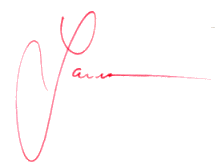


I was trying to write an essay about "Red Dragon," which is being made into a film for the second time and is doing shooting here in Baltimore. I wanted to talk about my great affection for "Freddy Lowndes," the tabloid reporter who is nibbled by the serial killer known as the Tooth Fairy, then set on fire and sent zooming down a parking lot ramp in a wheelchair. I was going to argue - and not for the first time -- my extremely idiosyncratic view that Brian Cox is a better Hannibal Lecter than Anthony Hopkins. But the essay was lying limp on the table, brain dead if not DOA, when a dear friend asked me if I would help her prepare for a speech by sharing what books had influenced my work as a journalist. This is an edited version of what poured out:
Dear --
I went to the Medill School of Journalism and, as you know, have very little good to say about what I've often described as my education-by-anecdote. I did have some excellent teachers, most notably Sallie Gaines. But this was the era where the point of journalism school seemed to be to scare students away from careers in journalism.
On my own, I used to read a lot about our so-called craft. I took to heart Joan Didion's observation, as relayed by Tom Wolfe, that shyness can actually enhance an interview, for people will rush to fill silences. I read Janet Malcolm's famous essay on Joe McGinniss and what I think of as its companion piece, the book on Sylvia Plath's literary estate, "The Silent Women: Sylvia Plath and Ted Hughes." The final stunning image of that book is about as good a description of the dilemmas facing journalists as anything I've ever read.
But of everything I've read, the book that made the greatest impact on me was -- this is a little embarrassing -- "Celebrity," by Tommy Thompson.
Do you remember this book? Does anyone remember this book? It was a novel about three friends who shared a terrible secret. Of course, it was only a matter of time before that secret came back to haunt them, but first each boy found his own fame. One was a football player-turned-actor, one was a felon-turned-television evangelist.
And one became a journalist. He broke into Houston newspaper life with great flare. Then, after a series of page-one bylines, he was put on the obit desk for an obligatory rotation. Insulted, furious, he did a perfunctory job. The boss called him on the carpet and told him that every person's life was a story worth telling. The trick was in asking the right questions.
I happen to believe this. Sure, there are people whose stories simply cannot be extracted, even with the best questions -- people who are so taciturn, so guarded, so duplicitous, or even so deranged, that no reporter can break through. But that's just a way of saying the story is inaccessible. It still exists.
Remember "The Seat"? That was the experiment, a few summers back, to write a profile of the person who happened to sit in a certain seat during the Orioles' homestands. Some of our esteemed colleagues -- people I like and respect -- argued the concept was flawed. They said it was arbitrary, artificial. I loved the idea.
The thing is -- most feature-writing begins with artifice.
Trend stories are the best example of this. Let's take the spate of stories on two recent "phenomena" -- "Trading Spaces" and "The Osbournes." Now I adore both. But why are they getting so much attention in the press? This is a country of, I think, 260 million people. "The Osbournes" attract 5-6* million - not even 2 percent -- and the "Trading Spaces" audience is smaller still. Even a huge television hit, like "Survivor" in its first season, reaches perhaps less than 20 percent of the country.
On the other hand -- most people go to school, get married, buy a prom dress, get Halloween costumes, try out for the school play, dream of winning contests, fight City Hall, go to rummage sales, work crossword puzzles. And these people read newspapers, too. Why wouldn't a newspaper affirm that their readers are interesting? Why would we -- oops, I forgot I'm not a fulltime journalist, although I do still freelance -- want to keep readers on the sidelines, faces pressed up against the glass of celebrity/trend experience?
Want to talk about artificial? Well, what is more artificial than being summoned to a super-famous person's hotel room and being granted an audience of no more than an hour, in which the quotes might as well come out of a can, or a press kit. The reporter is reduced to trying to wring significance from the impersonal surroundings. (The tea drunk. The tea not drunk. The brand of cigarettes. The color of the toenails, if visible. I'm getting depressed just thinking about it.)
Truth is elusive. Everyone, even 10-year-old boys, does a certain amount of self-mythologizing, has organized his or her own life into a narrative structure that helps make sense of what is simply too much information. (I stole that idea from Susan Orlean by the way. I love her work. She's so good, she makes me not want to be a journalist.) That's where Malcolm ended up in her story about Plath: The moment we begin to edit, the moment we select or reject a single detail, we have entered into something that is artificial. Structure is artifice. If we want to present verisimilitude, we'd just hook up webcams and stream people's lives into other's homes.
The thing is, to write about so-called "ordinary people" -- in quotes, because there are no ordinary people in my view -- you have to have empathy. And to have empathy, you have to be able to shut off that part of the brain that is evaluating every quote, every statement, every moment for its efficacy. In one of my favorite movies, "All That Jazz," the Bob Fosse character's girlfriend says of his perpetual unfaithfulness: "I just wish you weren't so generous with your cock." A glazed, transcendent look comes over his face: "That's good," he says, "I can use that." Too many reporters are saying the same thing, internally. They're so busy taking notes, looking ahead to their bylines, that they've ceased to listen.
Now, there are times where empathy can't take us the distance. As a non-parent, I'm not sure I really can imagine the horror of losing a child, for example. But I know what it is to be a student, a sister, a daughter, a dreamer. When I look back at all those stories about so-called "ordinary" people, that's the thread I see: I wrote about people's dreams, the transformative powers of ordinary things. Christmas shopping, prom dresses, speed humps, report cards. I'd rather write about people's active dreams than their indirect yearning toward the dreams of others. (Is MTV's "Becoming" is the most brilliant or most depressing show on television? I can't decide.)
Feature writers, like doctors, should take an oath to do no harm. I'm not saying you never hurt anyone's feelings because that would be too restrictive. Some people deserve to have their feelings hurt, to have their self-importance pricked. Unfortunately, these prima donnas are the ones we usually give a free pass to, while making fun of everyday folks for their hair and their clothes and their accents. But by developing empathy and eschewing "edge" -- or whatever the buzz word of the moment is -- we might actually put out newspapers that people feel they can't live without.
But there I go again, using the "we" word. As Tonto said to the Lone Ranger . . . Anyway, at this point, I'm afraid it's up to you.
P.S. "The Osbournes" recently reached almost 8 million people, a stunning figure for cable television, but still only a tiny part of the population at large.

Read We Were Haranders.
Read Spying on Harriet.
Read Gone Baby Gone.
Read The Last Good Saturday Night.
Read In a Strange Kitchen.
Read The "D" Word.
